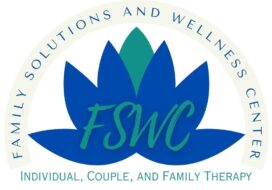Adult Depression
Do you find yourself struggling to feel joy, unable to find motivation to do daily tasks, or constantly feel fatigued and drained?
- If you experience this, it is possible you may also experience some of the following symptoms of depression:
- Feeling down, hopeless, or numb inside
- Experiencing isolation and withdrawing from friends, family, coworkers, etc.
- Lack of interest in activities or hobbies you used to enjoy
- Feeling emotionally disconnected from friends, family, or romantic partners
- Turning to drugs, alcohol, or food to distract yourself and soothe your pain
- Negative self talk or consistently shaming yourself
Depression can feel like an endless cycle of isolation, self blame, and a sense of hopelessness that can be triggered by difficult life events or seem to come on for no reason at all. This means that depression can look different from person to person. Some experience a low mood or other symptoms for an extended period of time, while others fall into depression after experiencing hardships of life such as divorce, break up, loss, grief, illness, injury, etc. Depression can make you feel like you have lost control of your relationships, career, and other areas that make your life meaningful.
How Can Therapy Help?
No matter how long you have been experiencing symptoms, or what triggered your symptoms, therapy can help you process your experience and teach you skills to cope with depression in a way that allows you to feel connected to your life again. You do not have to go through depression alone. Speaking with a therapist can allow you to share your experience with a safe person without fear of judgment or shame.
Your therapist can help you by:
- Teaching you coping skills when negative self talk or limiting self beliefs are interfering with your daily life
- Processing any painful life events that may be contributing to your sense of hopelessness or feeling of disconnection from others
- Assisting you in identifying any triggers that bring on symptoms or make them worse
- Guiding you in setting practical, attainable goals that help you feel in control of your life and happiness
- Recognizing your strengths and working with them to help minimize your symptoms and maximize your self confidence
Additionally, your therapist can help you learn ways to maintain care for yourself and utilize people in your life for a support system outside of therapy. Depression can seem like a dark tunnel with no end, however, your therapist can act as a guiding light helping you work with your strengths, learn healthy coping skills, get connected with your emotions, and empower you to engage with joy and purpose again.
You may be hesitant to wade through these difficult emotions and symptoms, fearful that talking about it might make things worse. This is a normal concern, however, positive and negative emotions exist to tell us something. Your therapist can help you process what your depression symptoms might be trying to tell you, and can offer support as you learn how to respond in a way that gives you control over your happiness. Therapy is a one step at a time journey, guiding you towards a more functional and fulfilling life.

